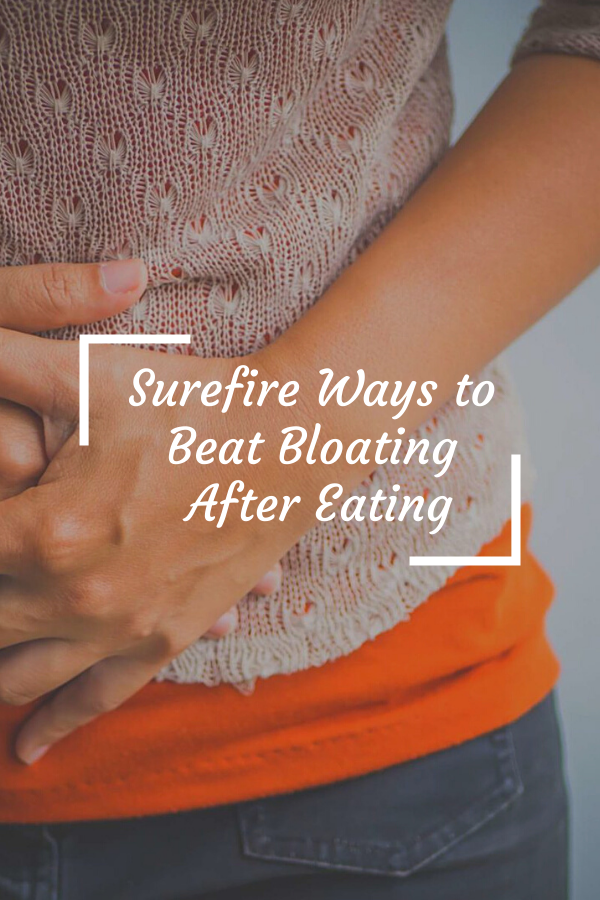
Surefire Ways to Beat Bloating After Eating
After having meals, does your Waistband feels tight? It may not only be that you ate too much.
Akin to hundreds of thousands of people worldwide – men and women; you could be suffering from belly bloat, which can be provoked by anything from eating reheated spaghetti or hormonal imbalance. Sometimes it can also be triggered by an insipid glass of water.
Among the numerous issues of digestive and dietary distress, people most commonly complain of bloating and gas. Given how frequently I encounter this stomach problem, one would deem I have created a magical dietary prescription to resolve it, quickly. But alas, I have still not.
Often boating is propelled by annoying bowel syndrome, a state that affects a staggering one in seven people (activated by an oversensitive stomach, it leads to issues with bowel function and can cause bloating, constipation, diarrhea and cramps).
Additionally, many people complain of passing gas excessively and then there are those who complain of belly protrusion that continues despite weight loss. Most people’s gut may swell just a couple of inches (“food-baby”), others can double in cinch in just a day, only to deflate overnight till the next attack.
Not everyone’s tummy will inflate in this manner – rather they will report suffering from irritable swollen feeling. Here are a few tips to avoid bloating after eating:
Remain Hydrated
Drinking water is likely the last thing that you would want to do when you feel like your tummy is about to explode. However, downing 8-10 glasses of water a day restores the sodium content so you body will secrete fluids. Additionally, water flushes your digestive system and keeps the tract moving so you do not at all feel constipated.
Ditch carbonated beverages and sodas. You may think deem they will help you feel better by inducing burping, however all they do is add gas to your digestive system and trigger bloating. Be wise and quench your thirst with water – an ideal, all-natural drink.
Moreover, if you want to dress it up, add lime slices or lemon juice or any low-calorie flavor. Many water-filled vegetables and fruits can help you hydrate.
Bid Adieu to Sugar Substitutes
These sugar substitutes – xylitol, isomalt, erythritol, hydrogenated starch hydrolysates, sorbitol, lactitol and mannitol could be lurking in any food products marked “sugar-free.” Sugarless food items may help you save a few calories, but they loiter in your belly, where normal bacteria feast on them.
The result? One waste by-product of this feeding frenzy is hydrogen gas that causes flatulence, bloating and stomach pain.
Watch your Salt Consumption
Salt makes your body to retain water. Approximately 80% of the sodium in our diets comes from canned or packaged foods. Always think of fresh and unprocessed food. Prepare more meals at home and purchase low-sodium foods. You will definitely win by eating green leafy veggies and fruits, but be cautious about the salad dressings and dipping sauces.
Their high salt quantity can bring on the bloat. You should not judge the saltiness via its taste, so prudently study the nutritional info mentioned on food labels whenever possible – a 6-inch tuna sub sandwich contains more than 1,000 milligrams of sodium, however an ounce of salty peanuts contains only 160 mg, probably same as a cup of fruit-flavored yogurt.
Most adults require 1,600mg of sodium a day – the equivalent of around 4g of salt that is less than a teaspoon. Read food ingredients and replace salt in cooking with lemon, herbs, balsamic vinegar and pepper.
Cut down salt intake to prevent bloating after eating.
Cut-down on dairy products intake
An excellent source of protein, calcium and other nutrients, dairy products also have lactose – a natural sugar. Nearly 50-million people in America are lactose-intolerant, which means they lack adequate amount of the enzyme lactose to completely digest the lactose present in the dairy foods. Undigested lactose causes cramping and gas. In case dairy products bother you, start taking about ¼ cup of milk twice a day and work-up to 2-cups daily. Moreover, you can try Lactaid or lactose-reduced milk.
Eat Small
Feel Stuffed? Stomach is all-tight?
Eat smaller portions in order to provide your digestive tract with a chance to work. If small meals leave you starving and low in energy, gear up with a nutritious snack. Or you can split your meal into 2 and eat those 2-3 hours later.
If your lunch includes apple salad, sandwich, yoghurt or broccoli switch to 2-mini meals:
Mini meal #1: ½ sandwich, apple salad and broccoli
Mini meal#2 : ½ sandwich and yoghurt
Chew your food 32-times
Do not gobble!
Slow down a little and savor every bite you eat. You swallow more air when you eat your meal quickly. More air in your stomach means more bloating.
For Chronic Bloat, Consult a Doctor
Bloating in general is no cause for concern
However, if it is chronic, see a doctor to help prevent something more serious like celiac disease, digestive disease triggered by intolerance to gluten or bowel obstruction.
Follow the afore-stated tips to prevent bloating after eating.
Enjoyed Surefire Ways to Beat Bloating After Eating? Share it with your friends so they too can follow the Superfoodsliving journey.
Share on Pinterest
